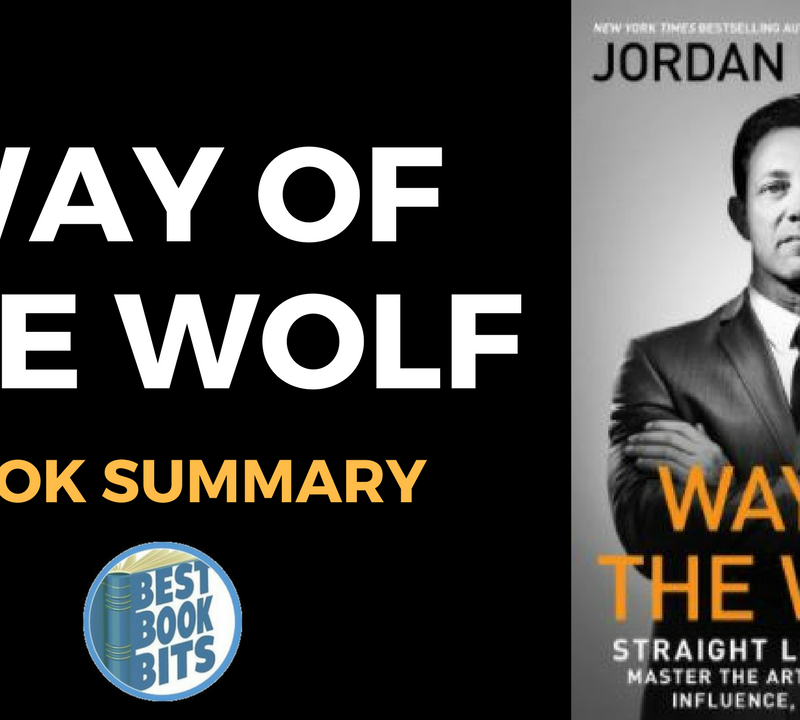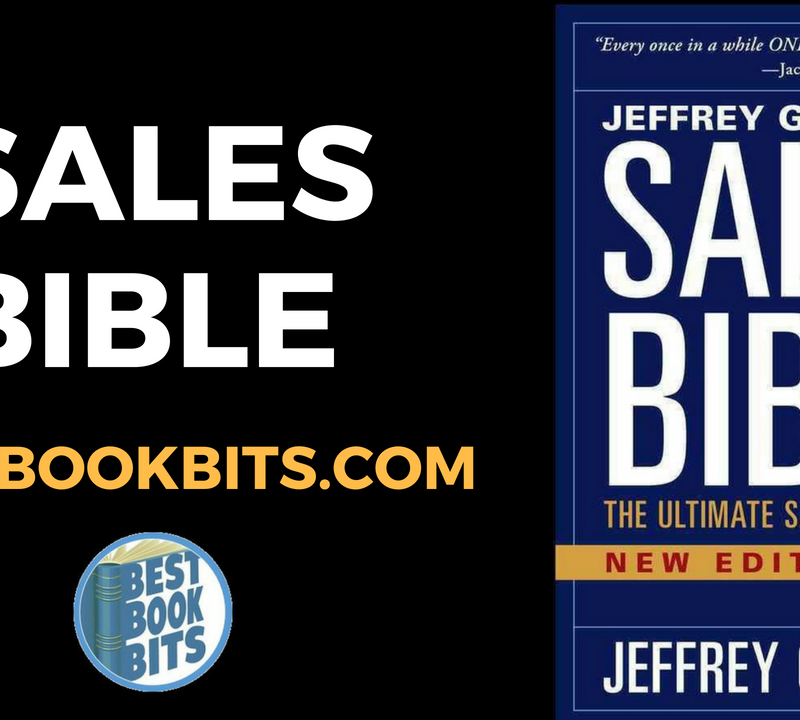♣ CLICK THIS TO STOP TRYING TO ACHIEVE YOUR GOALS BY YOURSELF AND BE COACHED TODAY HERE
♥ CLICK THIS TO DOWNLOAD THIS FREE PDF SUMMARY HERE
♦ CLICK THESE FOR THE FOLLOWING Book | Summaries | Course
YouTube |Spotify | Instagram | Facebook | Newsletter | Website
Chapter 1: The New rules
The open-ended question is a powerful negotiation tool
Calibrated questions are queries that the other side can respond to but that have no fixed answers
It buys you time
Humans all suffer from cognitive bias: unconscious and irrational brain processes that literally distort the way we see the world
The framing effect: people respond differently to the same choice depending on how it is framed
Loss aversion: people are statistically more likely to act to avert a loss than to achieve an equal gain
People want to be understood and accepted
Listening is the cheapest yet most effective concession we can make to get there
When individuals feel listened to, they tend to listen to themselves more carefully and openly evaluate and clarify their own thoughts and feelings
In addition, they tend to become less defensive and oppositional and more willing to listen to you and other points of view
The concept is called tactical empathy
This is listening as a martial art, balancing the subtle behaviors of emotional intelligence and the assertive skills of influence to gain access to the mind of another person
Contrary to popular opinion, listening is not a passive activity. It is the most active thing you can do
Life is negotiation
Negotiation serves two distinct vital life functions:
information gathering
behavior influencing
In this world, you get what you ask for, you just have to ask correctly
Chapter 2: Be a Mirror
In negotiations, you should engage in the process with a mindset of discovery
Your goal at the outset is to extract and observe as much information as possible
It is really not that easy to listen well. We are easily distracted, we engage in selective listening, hearing only what we want to hear, our minds acting on a cognitive bias for consistency rather than truth
To remedy the schizophrenic in your head and the other person’s head, your sole and all-encompassing focus in the beginning should be the other person and what they have to say
This true, active listening along with the other tactics will disarm your counterpart and make them feel safe
It begins with listening, making it about the other people, validating their emotions and creating enough trust and safety for a real conversation to begin
Going too fast is one of the mistakes all negotiators are prone to making
Your most powerful tool in any verbal communication is your voice.
You can use your voice to intentionally reach into someone’s Brain and flip an emotional switch
When people are in a positive frame of mind they think more quickly and are more likely to collaborate and problem solve instead of fight
Mirroring, also known as isopraxism, is essentially imitation
It’s a neural behavior in which we copy each other to comfort each other
♣ CLICK THIS TO STOP TRYING TO ACHIEVE YOUR GOALS BY YOURSELF AND BE COACHED TODAY HERE
♥ CLICK THIS TO DOWNLOAD THIS FREE PDF SUMMARY HERE
♦ CLICK THESE FOR THE FOLLOWING Book | Summaries | Course
YouTube |Spotify | Instagram | Facebook | Newsletter | Website
Biological principle: we fear what is different and are drawn to what’s similar
Being right isn’t the key to a successful negotiation, having the right mindset is
4 steps to mirroring:
Use late-night FM DJ voice
Start with I’m sorry
Mirror
Silence (at least 4 seconds)
The language of negations is primarily of conversation and rapport
A way of quickly establishing relationships and getting people to talk and think together
Key lessons: a great negotiator aims to use her skills to reveal the surprises she is certain to find
Don’t commit to assumptions
Instead, see them as a hypothesis and use the negotiation to test them rigorously
Negotiation is not an active battle, it is a process of discovery
The goal is to uncover as much information as possible
Slow it down
Put a smile on
Positivity creates mental agility in both you and your counterpart.
Mirrors work magic
Repeat the last 3 words or the critical 1-3 words of what someone has just said
Mirroring is the art of insinuating similarity which facilitates bonding
Chapter 3: don’t fear their pain, label it.
Instead of denying or ignoring emotions, good negotiators identify and influence them
Emotions aren’t the obstacles, they are the means
Empathy is paying attention to another human being, asking what they are feeling, and making a commitment to understanding their world
Tactical empathy is understanding the feelings and mindset of another in the moment and also hearing what is behind those feelings so you increase your influence in all the moments that follow
Empathy is a classical soft communication skill but it has a physical basis
When we closely observe a persons face, gestures, and tone of voice, our brain begins to align with their’s in a process called neural resonance
Labeling is a way of validating someone’s emotion by acknowledging it
Give someone’s emotion a name and you show you identify with how that person feels
Neutralize the negative, reinforce the positive
The fastest and most efficient means of establishing a quick working relationship is to acknowledge the negative and defuse it
The best way to deal with negativity is to observe it without reaction and without judgement
Then consciously label each negative feeling and replace it with positive, compassionate, and solution-based thoughts
Clear the road before advertising the destination
Label your counterparts fears to diffuse their power
Use labels to reinforce and encourage positive perceptions and dynamics
For good negotiators, “no” is pure gold
That negative provides a good opportunity for you and the other party to clarify what you really want by eliminating what you don’t want
“No” starts the negotiation
The right to veto
People will fight to the death to preserve their right to say no, so give them that right and the negotiating environment becomes more constructive and collaborative almost immediately
There is a deep and universal human need for autonomy
People need to feel in control
There are three kinds of yes:
Counterfeit
Confirmation
Commitment
The connection built up with another person is useless unless the other person feels they are equally as responsible if not solely responsible for creating the connection, and the new ideas they have
Everyone you meet is driven by two primal urges:
The need to feel safe and secure
The need to feel in control
♣ CLICK THIS TO STOP TRYING TO ACHIEVE YOUR GOALS BY YOURSELF AND BE COACHED TODAY HERE
♥ CLICK THIS TO DOWNLOAD THIS FREE PDF SUMMARY HERE
♦ CLICK THESE FOR THE FOLLOWING Book | Summaries | Course
YouTube |Spotify | Instagram | Facebook | Newsletter | Website
One sentence email: have you given up on this project?
Chapter 5: trigger the two words that immediately transform any negotiation
Trigger a “that’s right” epiphany with a summary
In business, “that’s right” leads to the best outcomes
Don’t compromise
The win-win mindset is usually ineffective and often disastrous
At best, it satisfies neither side
No deal is better than a bad deal
We don’t compromise because it’s right, we compromise because it is easy and because it saves face
We compromise to be safe
Don’t settle and never split the difference
You’ve got to embrace the hard stuff
That’s where the great deals are and that’s what great negotiators do
Deadlines: make time your ally
Time is one of the most crucial variables in any negotiation
Deadlines are often arbitrary, almost always flexible, and hardly ever trigger the consequences that we think or are told they will
Deadlines are the boogie man of negotiations, almost exclusively self-inflicted figment of our imagination unnecessarily unsettling us for no good reason
You shouldn’t hide your deadlines because when it is over for one negotiator, it is over for both sides
Adding a deadline means you’re negotiating with yourself, and you always lose
We are all irrational and all emotional
While we may use logic to reason ourselves towards a decision, the actual decision making is governed by emotion
The most powerful word in negotiations is “fair”
We are mightily swayed by how much we feel we’ve been respected
Prospect theory: people are drawn to sure things over probabilities
Loss aversion: people will take greater risks to avoid losses than to achieve gains
Anchor their emotions in preparation for a loss and acknowledge their fears
Let the other guy go first most of the time
Establish a range
Pivot to non-monetary terms
When you do talk numbers, use odd ones
Non-rounded numbers seem more thoughtful, serious, and permanent to your counterpart
Surprise with a gift
Unexpected conciliatory gestures are hugely effective because they introduce a dynamic called reciprocity
The other party feels the need to answer your generosity in kind
How to negotiate a better salary:
Be pleasantly persistent on non-salary terms
Once you’ve negotiated a salary, make sure to define success for your position as well as metrics for your next raise
Spark their interest in your success and gain an unofficial mentor
Ask: what does it take to be successful here?
If someone gives you guidance, they will watch to see if you follow their advice. They will have a personal stake in seeing you succeed.
People take more risks to avoid loss than to realize a gain. Make sure your counterpart sees there something to lose by inaction
Chapter 7: Create the illusion of control
Negotiation is coaxing, not overcoming. Co-opting, not defeating
Most importantly, successful negotiation involves getting your counterpart to do the work for you and suggest your solution himself
Giving your counterpart the illusion of control by asking calibrated questions, by asking for help, is one of the most powerful tools for suspending unbelief
Only use what and how in calibrated questions
Aggressive confrontation is the enemy of constructive negotiation
Avoid questions that can be answered with yes or tiny pieces of information
These require little thought and inspire the need for reciprocity
Chapter 8: guarantee execution
Yes is nothing without how
A gentle how no question invites collaboration and leaves your counterpart with a feeling of having been treated with respect
A deal is nothing without good implementation
Your carefully calibrated how questions will convince them that the final solution is their idea
Ask: how will we know we are on track and how will we address things if we find we are off-track?
♣ CLICK THIS TO STOP TRYING TO ACHIEVE YOUR GOALS BY YOURSELF AND BE COACHED TODAY HERE
♥ CLICK THIS TO DOWNLOAD THIS FREE PDF SUMMARY HERE
♦ CLICK THESE FOR THE FOLLOWING Book | Summaries | Course
YouTube |Spotify | Instagram | Facebook | Newsletter | Website
When they answer, you summarize their answers until you get a “that’s right”
Then you’ll know they’ve bought in
7/38/55 Rule: only 7% of a message is based on words, while 38% comes from the tone of your voice, and 55% from the speaker’s body language and face
There are three kinds of yes: commitment, confirmation, counterfeit
The Rule of Three is simply getting the other guy to agree to the same thing three times in the same conversation
It is tripling the strength of whatever dynamic you’re trying to drill into at the moment
The reason this works is because it is really hard to repeatedly lie or fake conviction
Liars tend to use more words and speak with third-party pronouns to distance themselves from the lie
Liars also tend to speak in more complex sentences to try and win over their suspicion counterparts
The Pinocchio Effect is when the number of words grows along with the lie
Liars are more worried about being believed, and work harder, perhaps too hard, at being believable
Using your own name creates the dynamic of forced empathy. It makes the other side see you as a person
Humanize yourself. Use your name to introduce yourself
Say it in a fun, friendly way
Let them enjoy the interaction too and get your own special price
Chapter 9: Bargain hard
To be great at the bargaining table, you have to add to your strengths, not replace them
The Black Swan Rule: don’t treat others the way you want to be treated, treat them the way they need to be treated
For anger to be effective it has to be real
The key for it is to be under control because anger reduces our cognitive ability
In bare-knuckle bargaining, the most vital principle to keep in mind is never to look at your counterpart as an enemy
Chapter 10: find the black swan
He believes that in every negotiation, each side is in possession of at least three black swans
Three pieces of information that, were they to be discovered by the other side, would change everything
To uncover these unknowns, we must interrogate our world, put out a call and intensely listen to the response, ask lots of questions, read nonverbal clues and always voice your observations with your counterpart
Negotiation is more like walking on a tightrope then competing against an opponent
Focusing so much on the end objective well only distract you from the next step and that can cause you to fall off the rope
Concentrate on the next step because the rope will lead you to the end as long as all the steps are completed
Your counterpart always has pieces of information whose value they do not understand
Black swans are leverage multiplier. They give you the upper hand
In theory, leverage is the ability to inflict loss and withhold gain
Where it is your counterpart wants to gain and where do they fear losing?
Discover these pieces of information and you’ll build leverage over the other side perceptions, actions, and decisions
The party who feels they have more to lose and are the most afraid of that loss has less leverage
To get leverage, you have to persuade your counterpart that they have something real to lose if the deal falls through
In any negotiation, it’s not how well you speak, but how well you listen that determines your success
Understanding the other is a precondition to being able to speak persuasively and develop options that resonate with them
We trust people more when we view them as being similar or familiar
People trust those who are in their “in” group
Belonging is a primal instinct, and if you can trigger that instinct, you’ll immediately gain influence
He hopes this book gets you over the fear of conflict and encourages you to navigate it with empathy
If you’re going to be great at anything, you’re going to have to do that
You’re going to have to embrace regular, thoughtful conflict as the basis of effective negotiation and of life
The adversary is the situation, and that the person you appear to be in conflict with is actually your partner
Don’t avoid honest, clear conflict
When someone seems irrational or crazy, they most likely aren’t
Search for constraints, hidden desires, and bad information
Get face time with your counterpart
10 minutes of face time often reveals more than days of research
“When the pressure is on, you don’t rise to the occasion. You fall to your highest level of preparation”
People who expect more, and articulate it, get more
Themes / Main Ideas:
Calibrated questions, mirroring, and labeling are effective tools for tactical empathy
In this world, you get what you ask for, you just have to ask correctly
Emotions aren’t the obstacles, they are the means
People want to feel like they’re in control and will fight to preserve their autonomy
Don’t settle and never split the difference. No deal is better than a bad deal.
Emotions are the means. People want to feel heard and respected.
Negotiation is coaxing, not overcoming. Co-opting, not defeating
“Yes” is nothing without “how”. A deal is nothing without good implementation
Don’t treat others the way you want to be treated, treat them the way they need to be treated
Negotiation is more like walking on a tightrope then competing against an opponent. It is a discovery process to be taken one step at a time.
In any negotiation, it’s not how well you speak, but how well you listen that determines your success
You’re going to have to embrace regular, thoughtful conflict as the basis of effective negotiation and of life. Don’t avoid honest, clear conflict.
People who expect more, and articulate it, get more
♣ CLICK THIS TO STOP TRYING TO ACHIEVE YOUR GOALS BY YOURSELF AND BE COACHED TODAY HERE
♥ CLICK THIS TO DOWNLOAD THIS FREE PDF SUMMARY HERE
♦ CLICK THESE FOR THE FOLLOWING Book | Summaries | Course
YouTube |Spotify | Instagram | Facebook | Newsletter | Website













